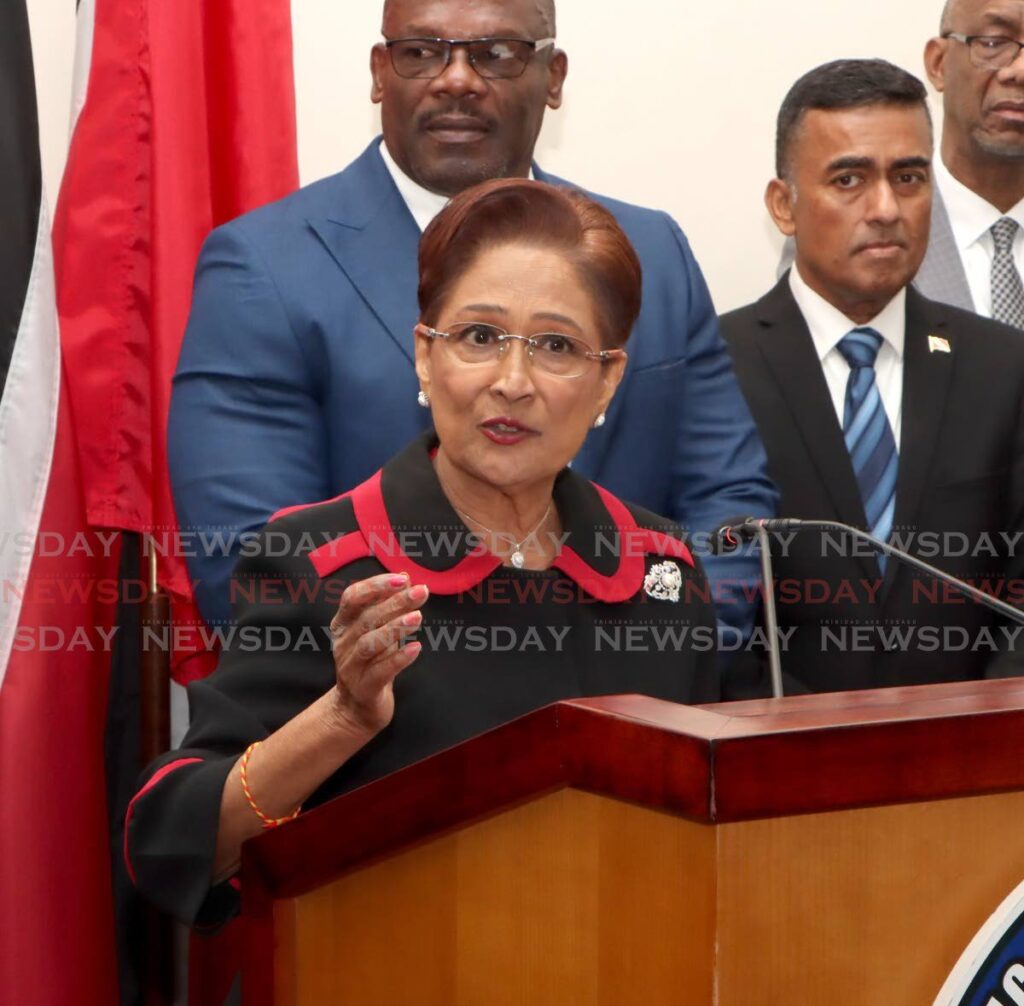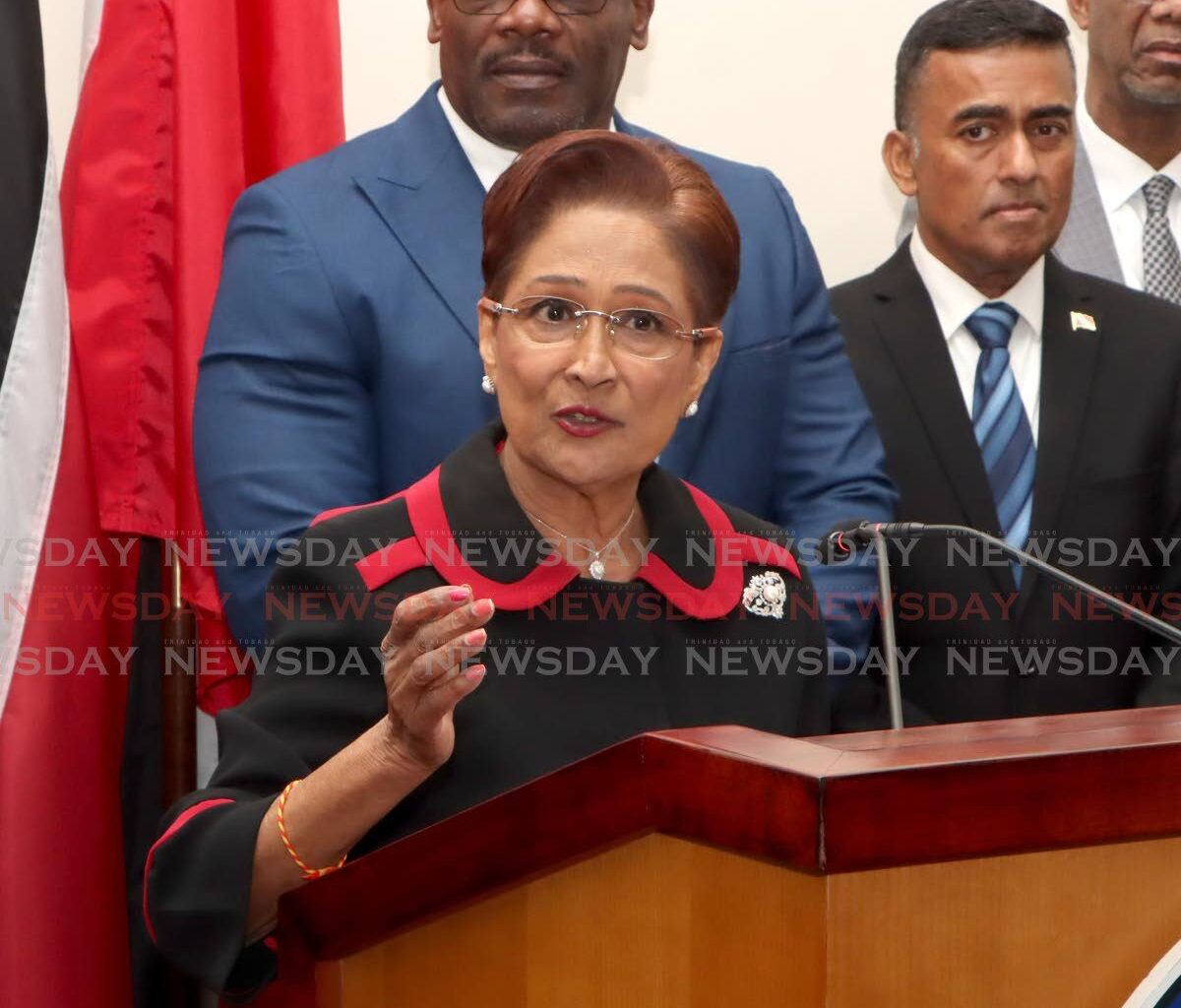Wednesday 9 July 2025
 Prime Minister Kamla Persad-Bissessar – Photo by Angelo Marcelle
Prime Minister Kamla Persad-Bissessar – Photo by Angelo Marcelle
FEW CAN disagree with the Prime Minister’s proposal to raise age limits for gambling, marijuana and booze. All three are subject to abuse. All three are particularly harmful to youth. And all three are not adequately regulated. New age limits would be a step in the right direction.
Ms Persad-Bissessar’s July 7 announcement of a plan to limit gambling and marijuana use to people aged 25 and over is not surprising. She decried excessive gaming and drug abuse in youths in April on the campaign trail. UNC manifesto documents also called for a higher age limit for ganja. The inclusion of a steeper threshold to prevent those under 21 from drinking reflects the fact that what unites all three is one thing: addiction.
While the government should deploy data to back up sweeping reforms, it is clear the PM is wagering that her position, hardly counter-intuitive, resonates with the population. She is not mistaken.
For instance, the extent of gaming addiction is difficult to gauge. Gambling is taboo. As made plain by a Sunday Newsday report of July 6, individuals report losing huge sums of money; the shame and stigma associated with this are severe. Participants interviewed for that report did not wish for their names to be published. At the same time, the wide reach of the gaming industry is suggested by the fact that there are dozens of casinos and hundreds of slot machines all over Trinidad and Tobago. In 2021, the previous government estimated turnover of $15 billion.
In more recent years, online gambling has also taken off and it is an open question whether the rise of things like cryptocurrency has facilitated addiction. Required urgently is a drastic update of regulation and the full implementation of the Gambling (Gaming and Betting) Control Act. Raising the age limit would be one piece of the puzzle.
As would be limiting the reach of alcohol. Not only is there growing scientific consensus over the harmful effects of liquor generally, but there is also a clearer understanding of the risk posed to youths. The idea of addiction robbing people of their innocence is not abstract.
“Younger people are disproportionately affected by alcohol consumption: the highest proportion of alcohol attributable deaths – 13 per cent – in 2019 was among people aged 20-39 years,” noted Dr Tedros Adhanom Ghebreyesus, director-general of the WHO, in 2024.
Psychoactive substance use is similarly becoming more detrimental.
But all these issues are worsened by social factors that the government must also be willing to confront. Why are some classes of people more vulnerable to the ravages of addiction than others? Raising age limits alone would be a mere plaster to an addiction monster that needs multifaceted answers and holistic approaches.

